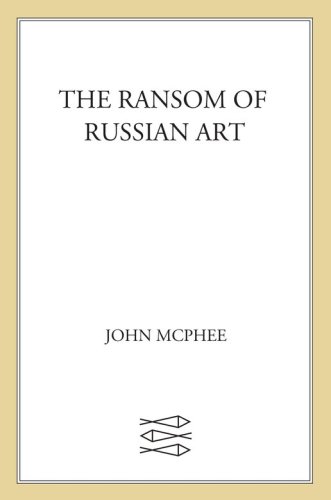
The Ransom of Russian Art
کتاب های مرتبط
- اطلاعات
- نقد و بررسی
- دیدگاه کاربران
نقد و بررسی

January 2, 1995
Dissident Soviet painters and sculptors-harassed and spied on by the KGB, their works shown clandestinely or in rare public exhibits-found an ally in Norton Dodge, a University of Maryland economics professor who smuggled their works to the West beginning in the early 1960s. On frequent trips to the Soviet Union, the awkward, gutsy Oklahoma-born art enthusiast visited the homes of underground artists and spent a fortune to buy some 8000 works by 600 artists. His collection, with styles ranging from Pop to abstract expressionism, was recently donated to Rutgers University. Interspersed with color art reproductions (not seen by PW), McPhee's engaging narrative sheds light on this suppressed creative milieu. The prolific author also tracked down emigre Soviet artists now living in the U.S., and he ponders the West's relative indifference to their rebellious art.

June 1, 1994
McPhee relates the story of Norton Dodge, who smuggled out thousands of works of underground artists from the Soviet Union in the 1960s and 1970s.

October 1, 1994
McPhee writes most often about the geology of certain dramatic regions. What, then, led him to write about art and profile a highly unusual collector? A chance meeting on an Amtrak train in January 1993. McPhee had no idea that the rumpled, mustachioed gentleman who sat down next to him would be the subject of his next book until the man introduced himself and began to talk. During a two-hour ride, Norton Townshend Dodge "uttered about forty thousand words," and McPhee was hooked. The story Dodge told, which McPhee followed up on in his typically thorough and energetic manner, is the astonishing tale of how he rescued two decades' worth of Soviet underground art from certain oblivion. A professor of economics, Dodge began traveling to Soviet Russia for research in the mid-1950s and soon assigned himself the mission of meeting "unofficial" artists and buying their work. Under Soviet rule, artists who refused to follow the party line risked imprisonment and death. Dodge became their biggest customer. A stereotypical absentminded professor who, his wife says, "couldn't fight his way out of a paper bag," Dodge somehow learned his way around Russia's forbidding cities, eluding his Intourist handlers and then smuggling thousands of drawings and paintings out of the country. Dodge ended up collecting an entire era of Russian dissident art. As McPhee relates Dodge's story, he also outlines the ignoble history of the Soviet persecution of artists and chronicles the life and tragic death of the painter Eugeny Rukhin. McPhee is both impressed with and puzzled by the eccentric Dodge, adding a bit of mystery to this thoughtful portrait. ((Reviewed October 1, 1994))(Reprinted with permission of Booklist, copyright 1994, American Library Association.)

























دیدگاه کاربران